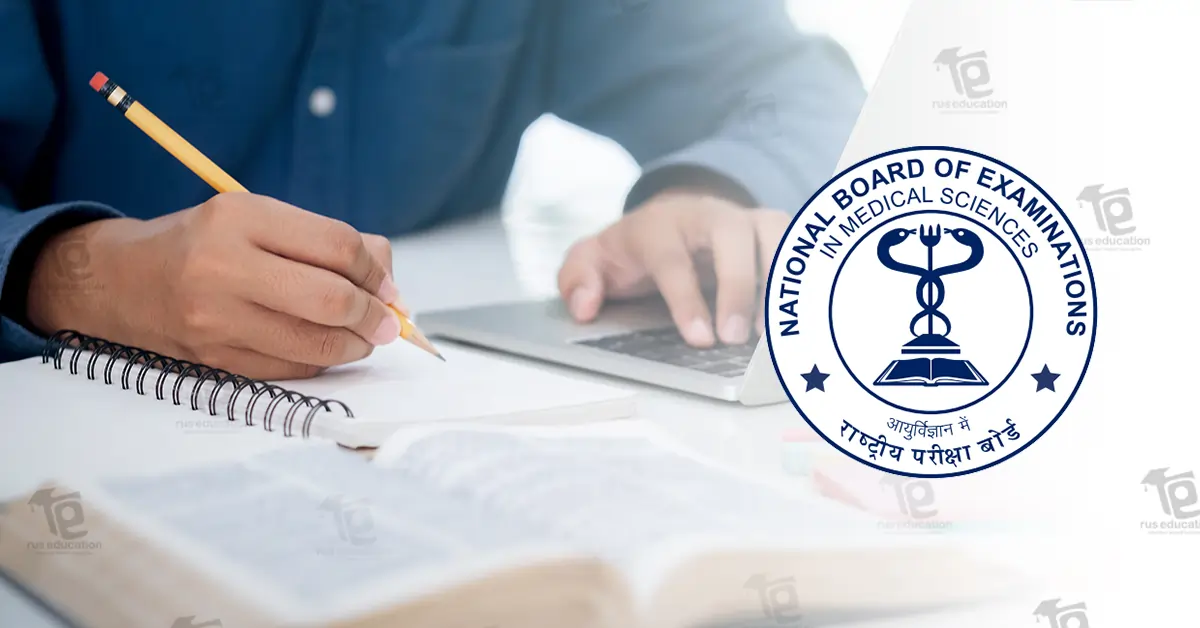The Foreign Medical Graduate Examination (FMGE) is a critical test for Indian medical graduates who have earned their degrees from foreign institutions and wish to practice medicine in India. As the medical landscape evolves with the introduction of the National Exit Test (NEXT) in 2025, the FMGE remains a significant milestone for thousands of aspiring doctors. Russian medical universities, known for their quality education and global recognition, have been proactive in supporting their students for this challenging exam.
In this blog, we’ll explore how Russian medical universities are preparing their students for FMGE 2025, focusing on academic support, clinical exposure, innovative teaching methods, and specialised training.
Understanding the Importance of FMGE 2025
FMGE is a qualifying examination for Indian medical graduates qualified from abroad and conducted by the National Board of Examinations (NBE). In India, it is a must to secure a medical license. The exam consists of 300 multiple-choice questions on 19 medical subjects, including anatomy, physiology, pathology, pharmacology, surgery, and many more.
The NEXT, which is going to be an amalgamation of a licensing exam and a common exit test for all medical graduates in India, will replace the FMGE from 2025 onwards, bringing medical practice standards on par. But these are the fundamental requirements of the exam: clinical knowledge and practical skills. This is the importance of FMGE.
Why is the FMGE required?

- Legal Requirement to Practice in India: Students need to clear the FMGE to get provisional or permanent registration to practice medicine in India.
- Career Progression: Passing the FMGE is often a prerequisite to pursue postgraduate studies and specialist training in India.
- Professional Recognition: It certifies the quality of the education obtained overseas and qualifies the doctor with sufficient competence in the practice of medicine.
- Patient Safety and Trust: The exam is to make sure that those returning doctors are up to standard so they can provide safe and effective healthcare.
Do Russian Medical Universities Help in FMGE Preparation?
To improve the FMGE passing chances of their students, the top Russian medical universities have come up with a variety of innovative strategies and support systems.
1. Comprehensive FMGE-Focused Curriculum
Most of the Russian universities have redesigned their medical curriculum very much along the same lines as FMGE/NEXT. Core medical subjects and practical skills are emphasised to get students more prepared for both theoretical and clinical aspects of the exam. Key features include:
- Integrated FMGE Modules: Course content is updated regularly to match that of the latest FMGE syllabus.
- Focused Teaching on High-Yield Topics: They stress test subjects such as pathology, pharmacology, and surgery very often.
- Case-Based Learning: Providing real-life clinical scenarios to help with diagnostic and analytical skills.
For example, students of Perm State Medical University are imparted with FMGE coaching in Russia as a part of regular teaching, and so are the students of Tver State Medical University.
2. Collaboration with Indian Coaching Institutes
Several Russian medical universities have established relations with Indian FMGE coaching institutes, causing thorough preparation to be recognised as an important factor. These collaborations offer:
- Expert Faculty: In addition to this, access to experienced Indian professors who know the ins and outs of the FMGE exam pattern and the high-yield topics.
- Customised Study Materials: Question banks, flashcards, and practice tests designed for the FMGE.
- Online and Offline Support: One-on-one doubt-clearing sessions, regular webinars, and live classes.
Take Perm State Medical University and Orenburg State Medical University, where they have tied with the Indian coaching centres for targeted FMGE guidance in Russia, which has certainly helped them with their students’ pass rate.
3. Advanced Clinical Training and Experiences
FMGE is an exam to assess clinical judgement and patient care skills, and practical experience is a must to crack the same. To ensure the priority of hands-on training, Russian medical universities have :
- Affiliated Teaching Hospitals: Working in some of Russia’s leading hospitals, students gain real-world experience that involves working with patients that they see from a wide variety of specialities.
- Simulation Labs: This includes high-tech labs where students get to practise surgical skills, emergency care or patient management.
- Hospital Visits: Hospital rounds are done in a regular hospital setting, as well as clinical case discussions aimed at developing critical thinking and diagnostic abilities.
Moreover, this practical method not only educates the students to pass from FMGE but also equips them to tackle complicated medical cases in their future careers.
4. English-Medium Instruction and Language Support
International medical students can face a huge barrier with the language. Of course, to answer this, many Russian universities have Russian MBBS programmes in English, which means that any Indian students wouldn’t have to struggle trying to learn Russian on top of everything else.
Also, it becomes convenient for the students who are opting to take the FMGE, which is conducted in English.
Furthermore, students have the opportunity to take language support classes at which they can learn an elementary level of Russian in order to communicate with patients in clinical rotations.
5. Mock Tests and Regular Assessments
The fact is, there are many proven ways to increase exam performance, and frequent testing is one of them. The MBBS in Russian medical universities has a very rigorous assessment system that comprises:
- Monthly Mock Tests: Help students gauge their preparedness for the FMGE format exam by simulating the exam format.
- Topic-Wise Assessments: Focused tests on individual subjects to determine strengths and weaknesses.
- Performance Analytics: Feedback on a detailed level, and also suggesting how they can do better.
For example, Orenburg State Medical University and even Tula State University periodically conduct mock tests of FMGE for the students so that they can be fully prepared for the final examination.
6. Personalized Mentoring and Academic Support
However, personalised mentorship has an important role to play in student success. Russian medical universities provide:
- Dedicated Faculty Advisors: Professors who lead students through the minefield that is academia.
- Peer Study Groups: Reinforcing critical concepts in the collaborative learning sessions.
- Counseling and Motivation Sessions: Psychological support to reduce the stress and anxiety associated with exams, etc.
7. Extensively Research your Study Resources and Digital Tools
In today’s education, there is a need to access different kinds of resources. Russian medical universities offer:
- Digital Libraries: Get online access to international medical journals, research papers, and e-books.
- Mobile Learning Apps: On-the-go learning and quick revisions using interactive tools.
- Video Lectures and Recorded Sessions: Give medical students flexible study options.
Conclusion: Success in FMGE Delivered in Russia!
To improve the performance of FMGE 2025 in Russian medical universities, a complete support system has been developed for their students. These institutions integrate FMGE-focused curricula and practical training and, with the help of advanced teaching tools, ensure the graduates of these institutions are prepared to the hilt to take on this challenging journey.
Russian medical universities offer quality education and are globally recognised; hence, Indian students who want to complete their medical education abroad are going for them.
FAQs

Ques 1: Do Russian medical degrees get recognised in India for FMGE?
Answer 1: Yes, medical degrees from certified or world-recognised universities of Russia are valid in India as long as the university is in the World Directory of Medical Schools (WDOMS) and is recognised by the National Medical Commission (NMC). As a result, graduates are qualified to appear for the FMGE for practising in India.
Ques 2: Does FMGE coaching form a part of the curriculum of a Russian medical university?
Answer 2: However, many Russian medical universities have indeed included FMGE-oriented training as part of their common curriculum. They deliver subject coaching, mock tests, and study materials to ensure that students are well-equipped in time to take the exam.
Ques 3: To study MBBS in Russia, do I require learning Russian?
Answer 3: English medium programmes are offered by most Russian medical universities; therefore, you don’t need to be Russian or know the Russian language. Still, learning the basics of Russian can be of help in communication with patients on the clinical rotations.
Ques 4: What kind of clinical exposure do Russian universities provide?
Answer 4: Russian medical universities offer extensive clinical training in affiliated hospitals, allowing students to gain hands-on experience with diverse patient cases, which is crucial for FMGE preparation.
Ques 5: How do Russian universities support Indian students in preparing for FMGE 2025?
Answer 5: Russian universities provide a range of support services, including integrated FMGE coaching, personalised mentoring, digital learning resources, and regular mock tests to ensure students are thoroughly prepared for the exam.




